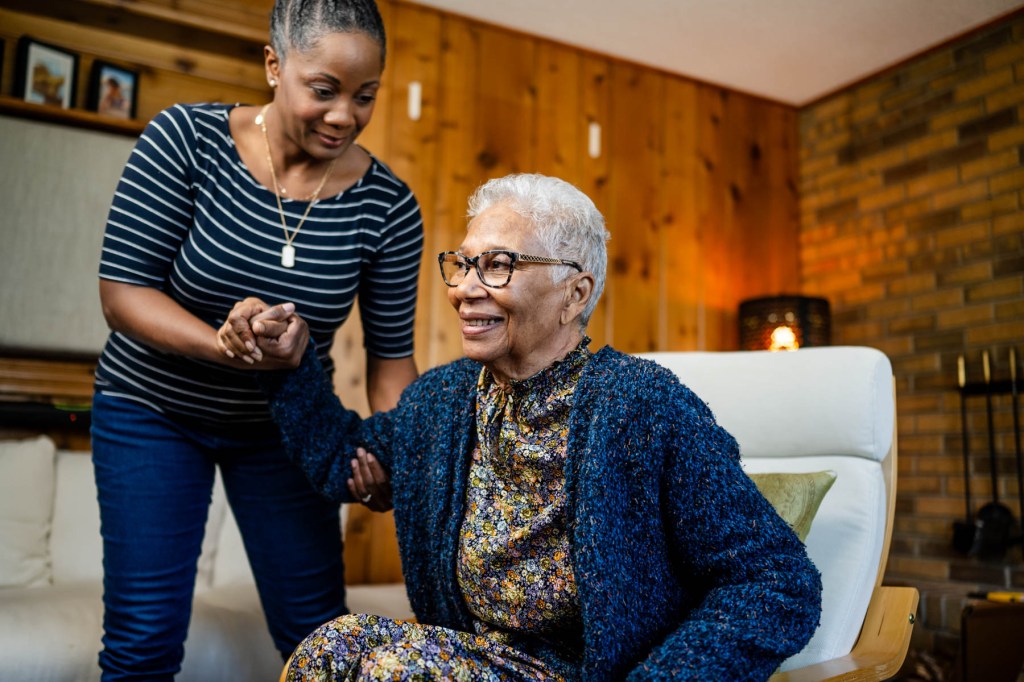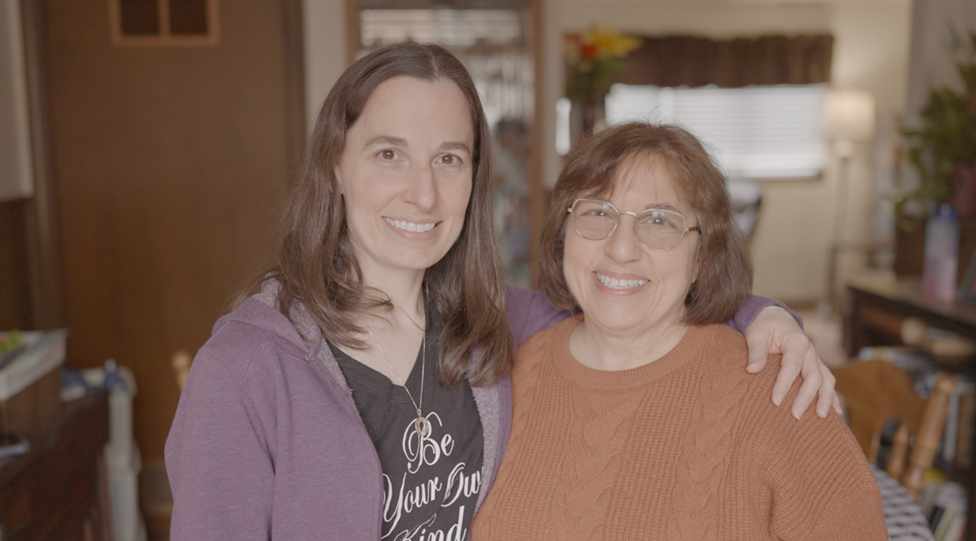
Coping with Anticipatory Grief: Before and After Loss
Grieving is not just a response that happens after you lose someone. People can experience anticipatory grief, which is the feeling of grief before the eventual death of the person you are caring for. While feelings of anticipatory grief can vary, it doesn’t make grief after loss shorter or easier, and can have a big impact on your wellbeing.
What is Anticipatory Grief?
Anticipatory grief often includes all the same social, mental, and physical reactions experienced after someone’s death, but is not as well known or discussed. Many caregivers often feel like they can’t express these feelings of grief and pain before someone dies, but not coping with anticipatory grief can negatively impact your health, as well as the care you provide. Learning how to manage this grief while continuing to care for your family member is important. This way, you can keep caregiving as your focus, while also taking care of yourself.
Anticipatory grief is a profound emotional experience, especially when watching a loved one approach the end of life. While anticipatory grief is different for everyone, there are a few signs that show just how powerful it can be, including:
- Finding yourself thinking about the past, present, and future, picturing what life will be like after they pass away.
- Being on alert, as you don’t know when your last moments with them will be.
- Feeling anxious or sad, and thinking about your own actions, rather than focusing on caring for your family member.
These feelings are normal, and a part of anticipatory grief. Understanding as much as you can about anticipatory grief and how to cope with it will help to keep you moving forward.
How to Handle Anticipatory Grief
Anticipatory grief has many highs and lows. You may have feelings of hope coupled with the reality that your family member’s life is ending. Consider redefining this hope and channeling it toward measurable goals, such as getting Mom out of bed, or getting Dad to eat more than one meal. During this time, keeping your caregiving team and community close is important.
To help cope with anticipatory grief, try completing some “bucket list” activities, or try all the person’s favorites one last time. This can help create connections and quality time together, while giving you a feeling of closure. Also, remember to take care of yourself during these times, finding the support you need and looking after your own wellbeing.
To get started on your own self-care journey, check out our Careforth blog, 5 Self Care Tips (and 1 Pro Secret) for Caregivers, for more tips on how you can take control of your own health and wellbeing.
Grief After Loss
Many caregivers find it difficult to move on after the person they are caring for passes away. Your daily routine is no longer filled with doctor appointments, preparing meals, or the person you cared for. It’s okay to feel lost during this time as you figure out your life without that person, create new routines, and cope with the feelings of loss.
To help move through grief after loss, consider these tips:
- Communicate your needs with friends and family or others in your support network. Tell them what you need and don’t hesitate to ask for support, as they will want to help.
- Acknowledge your feelings. For instance, it’s also normal to feel some relief after losing someone. If you have been a caregiver for many months, years, or even decades, there may be a sense of relief when you are able to return to focusing on your own life and goals, and that’s okay.
- Remember to eat and sleep. You may not have an appetite and sleeping may seem impossible, but poor nutrition and exhaustion will only contribute to your feelings of grief and anxiety, so make an effort to eat well and try to sleep whenever you are able.
Understanding Grief – Before and After Loss
Anticipatory grief won’t replace the feelings of grief after someone’s passing. But taking steps to manage your feelings can help you feel more prepared to handle loss. Positively, anticipatory grief allows you to be grateful for having the opportunity to say goodbye and to create good memories that you’ll carry with you forever.
Experiencing grief – before and after loss – is something that everyone deals with at some point in our lives. And living through anticipatory grief does not mean you are giving up, rather that you are reflecting on your remaining time together and working to cherish the moments you share with those to whom you provide care.
To help you navigate grief and support you through your caregiver journey, Careforth can provide you with the resources and connections you need to feel supported at every turn.
More insights like this:
-

What Is a Family Caregiver?
Read more: What Is a Family Caregiver?Caregivers, often family members, are the people who regularly provide care for a child or adult who is sick, elderly, or has a disability. Family caregivers take care of their loved ones every day. They help with daily tasks, providing emotional support, and assist with whatever their loved one may need. “Many people…
-

7 Immune System Booster Tips for Seniors
Read more: 7 Immune System Booster Tips for SeniorsThe immune system is the body’s first line of defense against viruses and infections, but the aging process can weaken the immune system. Throughout the COVID-19 pandemic, this became an increased concern for the caregivers of older or immunocompromised adults, as the risk of more severe symptoms and outcomes was much higher in these…
